
40 interesting, fun and astonishing facts about Switzerland
There are many interesting facts about Switzerland that you probably don't know yet. If you want to get ready for your trip to Switzerland, here are 40 fascinating, useless, interesting and fun facts about Switzerland. You'll be perfectly equipped to show off your knowledge. Or did you know that guinea pigs should never be kept alone in Switzerland? Or that the Lord of the Rings was inspired by Switzerland? Read on and widen your knowledge base.
Before you visit a new country, it can be helpful to brush up on a few facts. Whether it's for your next quiz night, a casual chat with someone on the train, or just to show off in front of your friends.
Switzerland may be small on the map, but it definitely packs a punch when it comes to facts. Here’s a list of 40 interesting, strange, and funny facts about Switzerland.
Switzerland is expensive
This is a well-known fact, but it’s still worth mentioning. Switzerland is one of the most expensive countries in the world. It’s good to be aware of this before you come here. This means you’ll likely spend more money at Starbucks, in restaurants, on day trips, and while shopping than you might be used to.
Once you accept this reality, your 7 CHF Big Mac and your 8 CHF Chai Tea Latte at Starbucks won’t knock you off your feet anymore. And when you return home, everything will feel much cheaper.
Unless, of course, you live in Norway, Bermuda, or Iceland.
Swiss Activities Tip: If you’re looking for ideas on how to save money in Switzerland, we recommend checking out our article on this topic.
Switzerland is Small
With an area of just over 40,000 km², Switzerland is quite a small country. Sweden is 10 times larger, Australia is 188 times larger, and Canada is 243 times larger. This often leads to Switzerland being underestimated when it comes to how much time you should plan for your visit.
In a country that's half the size of Lake Superior, you might not expect much. But we promise you: Even though you could theoretically cross the whole country six times in a day by car or train, a few days in Switzerland just won’t be enough. Although it is possible, as you can see in our itineraries for Switzerland.
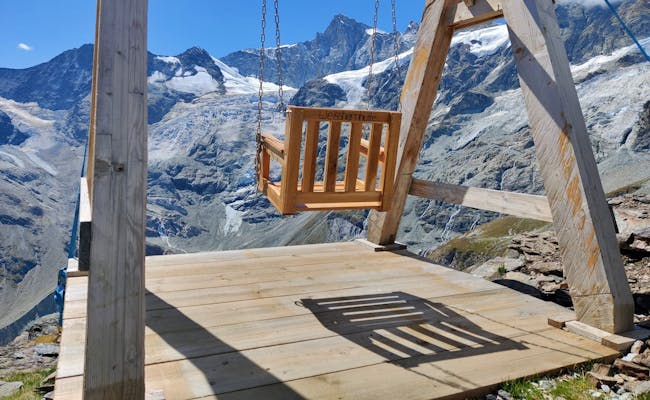
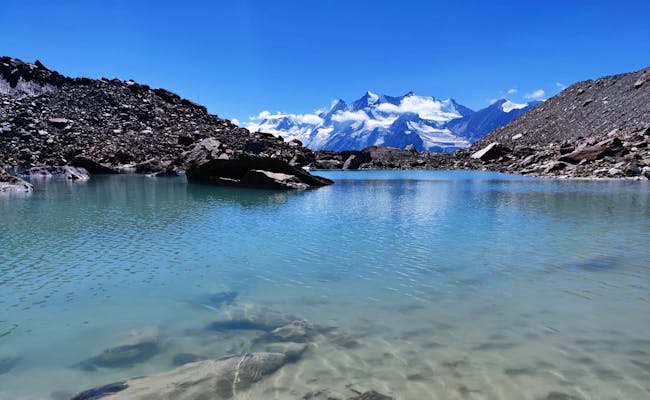
Switzerland has four official languages
Can you name them all? German, French, Italian, and Romansh. With about two-thirds, German is the most widely spoken language. It is followed by French at around 23%, Italian at 8%, and Romansh at just 1%. This is one of the reasons why Swiss people grow up learning foreign languages. Besides English, it's mandatory to learn at least one other national language in school. In our languages article, you can find out more about this interesting topic.
Swiss German is not a language
If you’re wondering why we didn't specifically mention Swiss German as one of the official languages, here’s the reason. It’s not really a language. Swiss German is a very complex phenomenon and more of a dialect than a proper language. Or rather, a collection of dozens of different dialects. The exact number is hard to determine.
Swiss German is spoken, but not officially written. It doesn’t follow strict grammatical rules. That’s why the constant debates among Swiss about who says it correctly don't really lead anywhere. However, that doesn't stop us from debating energetically anyway.
Switzerland borders five countries
The five countries that border Switzerland are Italy to the south, France to the west, Germany to the north, and Austria and Liechtenstein to the east. This explains why the French part of Switzerland is in the west, while in the southern part, in Ticino, Italian is spoken.
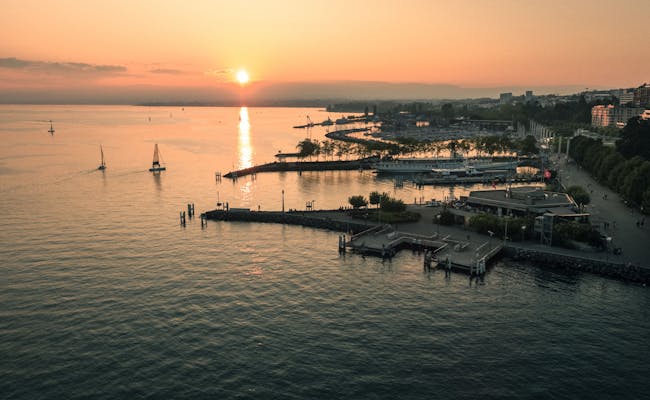
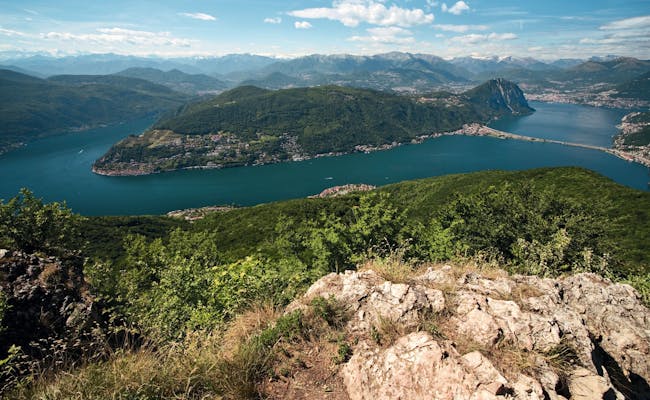
Switzerland has no access to the sea
When you're in Switzerland, there are plenty of activities to enjoy. Whether it's hiking, mountain biking, river rafting, paragliding, canyoning, climbing, kayaking, and so many other cool things. Unfortunately, whale watching and diving aren't on the list. Switzerland is completely landlocked, with our rivers being the only way to the sea. So leave your snorkel at home and take your hiking boots instead.
Forests in Switzerland are protected
In the 19th century, the dramatic deforestation led to numerous disasters such as landslides and avalanches. This prompted the Swiss to protect their forests. When the new law came out in 1876, it was revolutionary. It stated, and still states today, that forests in one place can only be cleared if the same amount is replanted somewhere else in Switzerland.
Switzerland loves cheese...
You've probably been wondering when we would mention Swiss cheese, right? Well, now is the time. There are over 450 different types of cheese in Switzerland. As you can imagine, this goes far beyond those holey cheddar slices. Or whatever is sold as "Swiss cheese" these days...
If you're interested in how Swiss cheese is made and where you can watch the cheese production, then check out our article on the cheesemakers of Switzerland.
… and chocolate
Just like the Swiss love their cheese, they also adore their chocolate. So much so that they consume over 10 kg per person each year. It's no wonder that visiting a chocolate factory in Switzerland is a very popular pastime. After all, it's the country where milk chocolate was invented.
To learn more about Swiss chocolate and see where it's made, check out our article on Swiss chocolate factories.
… and watches
Punctuality is something the Swiss take pride in. At least the majority do. This might have something to do with the rich history of the Swiss watch industry. Cities like Geneva, Neuchâtel, La Chaux-de-Fonds, and others in western Switzerland have played a major role in shaping the Swiss watch industry into what it is today.
Some of the most well-known names, like Rolex, Patek Philippe, Zenith, TAG Heuer, Swatch, Omega, Breitling, and IWC, come from Switzerland. By the way, there are numerous watch museums throughout Switzerland if you're interested. For example, the Zenith watch manufacture in Le Locle.
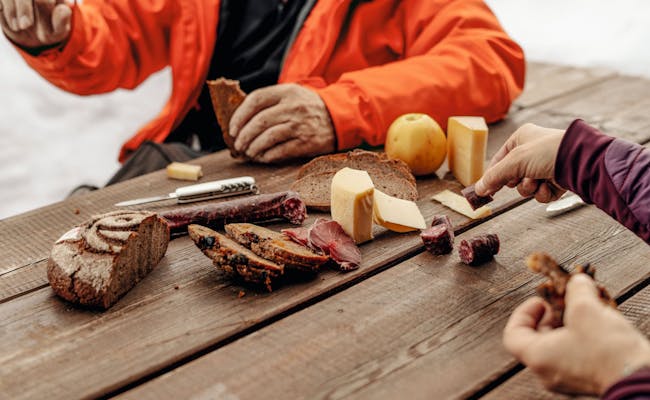
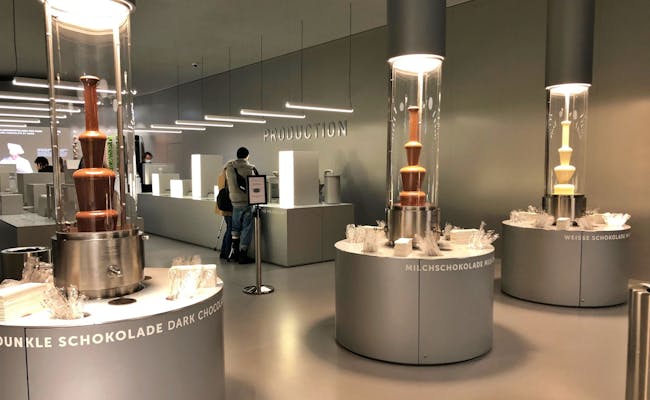
Switzerland is a Land of Trains
With over 5,300 kilometers of railway, Switzerland is a country of train travelers. No other nation in Europe covers as many kilometers by train as the Swiss do. This isn't surprising, given that Switzerland boasts one of the densest railway networks in the world. If you want to learn more about public transportation in Switzerland, check out our article on the topic.
Switzerland Has a Square Flag
Aside from the Vatican City, Switzerland is the only country in the world with a square flag. The reason for this can be traced back to history. As early as the 14th century, Swiss soldiers used the white cross on a square red background to identify each other on the battlefield. This symbol persisted, and in 1848 the white cross on a red background became the official Swiss flag.
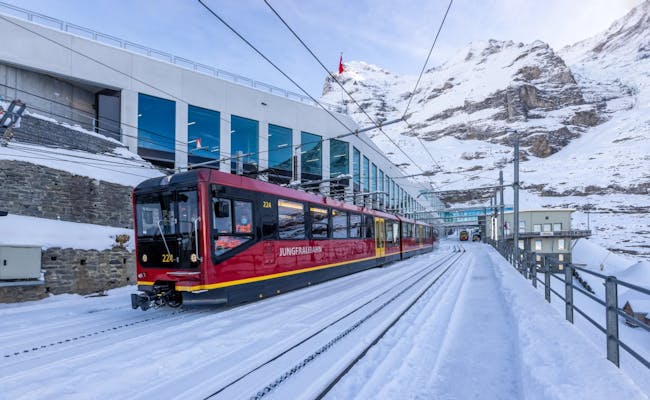
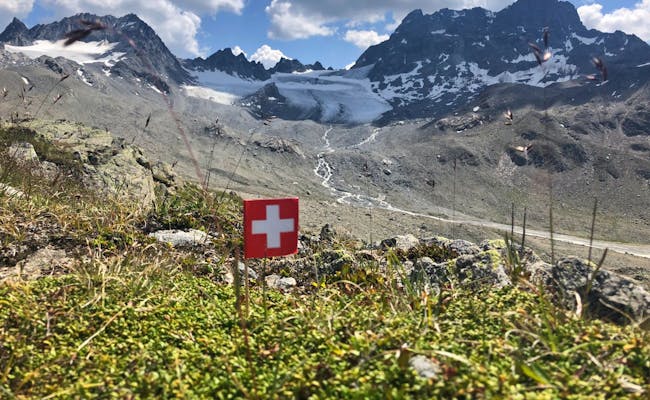
Switzerland has the most valuable banknote
No other banknote in the world is worth more than the purple 1000 CHF bill. It’s not a common means of payment that you come across often in your everyday live, though. Lots of people use it to store cash in a safe or to pay big amounts in cash. Technically, you could pay your groceries with a 1000 CHF bill. But don’t expect this process to be as smooth as if you were paying with a 100 CHF bill. The person at the cashier might have to go get your change in the save and chances are your bill gets checked for its authenticity.
More than half of Switzerland is made of mountains
A whopping 60% of Switzerland is made up of the Alps. The Jura mountains increase this proportion by a further 10%. A good three-quarters of Switzerland thus consists of mountains. However, this part is only inhabited by one tenth of the population.
The mountain regions with their wealth of beauty and nature are important for Swiss tourism. They are habitats for endangered animal species and sometimes rare mountain plant species. With a bit of luck, you will discover the cult alpine flower Edelweiss, a symbol of Switzerland.
48 Swiss peaks are over 4000 metres tall
The choice of high altitudes in Switzerland is enormous. Over 2000 mountains are considered 2000m peaks. Just over 1000 are 3000m and almost fifty mountain peaks exceed the 4000m mark. At a lofty 3454 metres above sea level, you enter Europe's highest railway station on the Jungfraujoch.
Because of its fatality rate, the Matterhorn is one of the world's 10 most dangerous mountains. This includes the almost 4000 m high Eiger with its 1800 m steep north face.
Here are the top ten Swiss peaks above 4000 metres:
- Dufourspitze|4634 m above sea level|Valais
- Dom|4545 m above sea level|Valais
- Liskamm|4527 m above sea level|Valais
- Weisshorn|4505 m above sea level|Valais
- Matterhorn|4478 m above sea level|Valais
- Dent Blanche|4357 m above sea level|Valais
- Grand Combin|4314 m above sea level|Valais
- Finsteraarhorn|4274 m above sea level|Bern/Wallis
- Zinalrothorn|4221 m above sea level|Valais
- Alphubel|4206 m above sea level|Valais
Europe’s longest glacier is found in Switzerland
With its 23 km, the Aletsch Glacier in the canton of Valais is the longest glacier in Europe. Between the Eiger, Mönch and Jungfrau mountain massifs, this giant of ice winds its way through breathtaking landscapes. In the heart of the Alps, the Aletsch Glacier is part of the largest contiguous glacier area on the continent.
As the tip of a climatic iceberg, the gigantic Aletsch glacier is melting away. In 80 years, small glaciers will have disappeared and large ones will have lost substance. This Swiss natural UNESCO World Heritage site is facing major challenges.
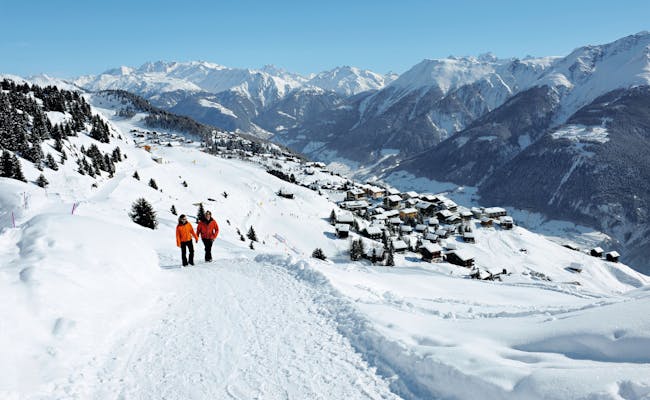
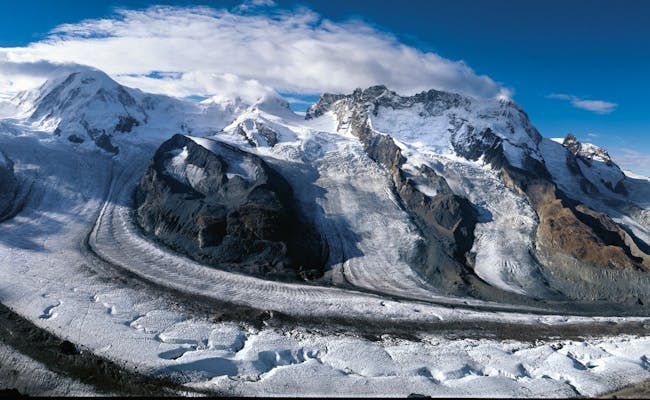
There are 13 UNESCO World Heritage Sites in Switzerland
Unique natural and cultural treasures are cared for and protected by all of humanity. This is the guiding principle of the UNESCO World Heritage List, which includes around 1,200 selected sites in nearly 170 countries. Switzerland boasts 13 UNESCO World Heritage Sites.
- Old Town of Bern|Added to the World Heritage List in 1983|Cultural Heritage
- St. Johann Monastery in Val Müstair GR|Added in 1983|Cultural Heritage
- St. Gallen Abbey District|1983|Cultural Heritage
- Castles, Fortifications, and City Walls of Bellinzona|2000|Cultural Heritage
- Swiss Alps Jungfrau-Aletsch|2001, 2007|Natural Heritage
- Monte San Giorgio|2003, 2010|Natural Heritage
- Lavaux Vineyard Terraces|2007|Cultural Heritage
- Swiss Tectonic Arena Sardona|2008|Natural Heritage
- RhB Railway in the Albula/Bernina Region|2008|Cultural Heritage
- La Chaux-de-Fonds / Le Locle, Urban Landscape of the Watchmaking Industry|2009|Cultural Heritage
- Prehistoric Pile Dwellings around the Alps|2011|Cultural Heritage
- Le Corbusier's Architectural Work|2016|Cultural Heritage
- Ancient Beech (Primeval) Forests in Europe|2021|Natural Heritage / Extension
Switzerland is the Water Tower of Europe
With over 1,500 lakes and 60,000 km of rivers, a large part of Switzerland's landscape is blessed with precious water. Six percent of Europe's drinking water comes from the Alpine country. Local springs feed major rivers like the Rhine, Rhône, and Inn, as well as the Po Valley. In this natural reservoir, you'll realize: Switzerland is the Water Tower of Europe.
Everything starts in the Swiss Alps. Bubbling springs, ample rainfall, and abundant meltwater contribute to the country’s wealth of water. In the summer, the lakes, rivers, and streams invite you to enjoy a refreshing swim.
Switzerland specializes in Tunnels
Switzerland is a tunneling nation. Back in 1707, the Ticinese engineer Pietro Morettini built the first traffic tunnel with the "Urnerloch". Since then, over 1,300 such structures have emerged, encompassing a total of 2,000 km of roads and railways.
There's no doubt the Swiss are renowned for being exceptional tunnel builders. Since 2016, the longest railway tunnel in the world, measuring 57 km, runs through the Gotthard massif. The construction of the Gotthard Base Tunnel is impressive: 2,400 workers, 17 years of construction, and costs of 11 billion. Every day, 260 freight trains and 65 passenger trains pass through.
The 28 million m3 of excavated rock has been partly recycled as railway ballast or aggregate for concrete. As you pass through, you’ll see the breakout as sprayed concrete on the inner vault. You see, Switzerland also specializes in recycling tunnels.
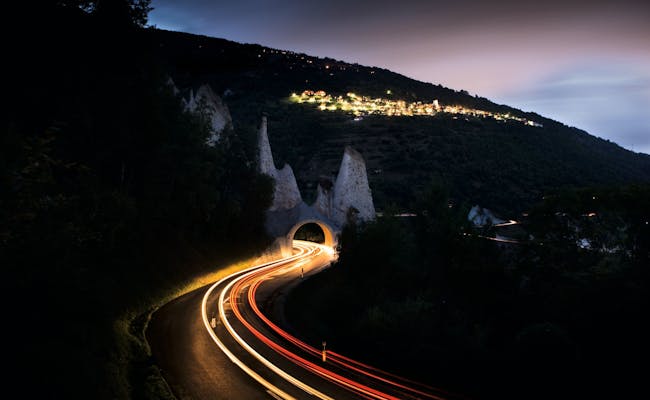
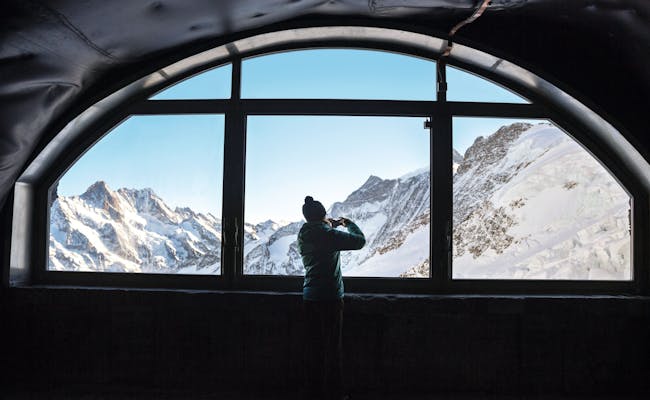
Switzerland has seven heads of state
Switzerland is a country with seven heads of state. The office of Head of State is held jointly by the seven members of the Federal Council of the Swiss government.
The office of President of the Swiss Confederation is assumed by a different member of the Federal Council each year. This function consists only of representational duties as well as individual presidential duties. Otherwise, the President of the Confederation is on an equal footing with the other members of the Federal Council.
The seven-member Federal Council is a distinct collective authority. Its decisions are represented by each individual member even if they do not correspond to his or her own opinion or party line. You see, consensus and collegiality are a Swiss speciality.
Switzerland has 26 cantons
The Confederation was formed in stages from the merger of sovereign territories. Switzerland therefore has 26 cantons. Even today, they have their own constitution, laws, government and police. On the smallest territory, you will find 26 school systems with different holiday and timetable schedules.
In the beginning, the Swiss cantons were states with their own currency and armed forces. In the 19th century, they grew into a confederation of states and finally into today's federal state.
Here you can find a list of the individual cantons with their year of accession and some information:
- Zurich|1351|largest canton: 1.5 million inhabitants
- Bern|1353
- Lucerne|1332
- Uri|1291
- Schwyz|1291
- Obwalden|1291
- Nidwalden|1291
- Glarus|1352
- Zug|1352
- Fribourg|1481
- Solothurn|1481
- Basel-Stadt|1501|smallest area canton: 37 km2
- Basel-Country|1501
- Schaffhausen|1501
- Appenzell Ausserrhoden|1513
- Appenzell Innerrhoden|1513|smallest canton in terms of population: 16.000 inhabitants
- Saint Gallen|1803
- Graubünden|1803|largest area canton: 7105 km2
- Aargau|1803
- Thurgau|1803
- Ticino|1803
- Vaud|1803
- Valais|1815
- Neuchâtel|1815
- Geneva|1815
- Jura|1979
The Swiss vote four times a year
In many countries, voters are only allowed to go to the polls every four or five years. The Swiss vote four times a year - a consequence of direct democracy. As the highest political authority, the Swiss people has the final say on substantive issues.
Citizens have a say in the affairs of state through referendums and popular initiatives. Until 2041, the Federal Chancellery has already planned one vote per quarter. Voting days are scheduled for February/March, May/June, September/October or November. The contents of the vote, which will gradually emerge from everyday political life, remain open.
Life expectancy is high in Switzerland
Although the elixir of life does not (yet) exist, life expectancy in Switzerland is constantly increasing. The average life expectancy for men is currently 82 years, for women it is 86 years. In 1900, the life span was 46-49 years, with hardly anyone reaching the age of one hundred. The main reasons for the high life expectancy are: minimal infant mortality, good nutrition, better living and hygiene conditions, and modern medicine.
Rising life expectancy is putting pressure on the national pension system. Fewer and fewer working people are shouldering the increasing number of pension beneficiaries. Nevertheless, you are left with the certainty that high life expectancy is a great achievement of our time.
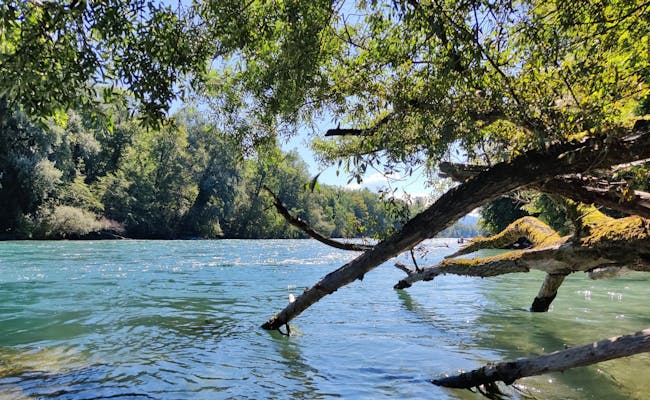
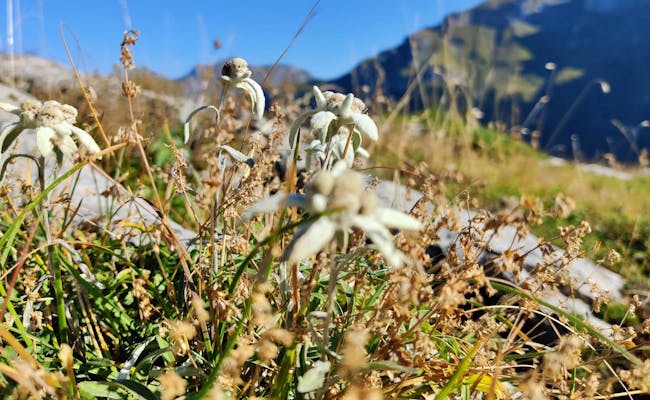
Unemployment in Switzerland is low
The unemployment rate in Switzerland is low and has reached record lows. With its low number of unemployed, Switzerland ranks first. Strong EU countries have double the unemployment rate, while the EU's laggards exceed 15%. You might wonder why? Certainly, the robust Swiss economy and smart economic policies play a role.
In Switzerland, employment offices assist unemployed individuals in their job search and fund further education. The Swiss embody values like work ethic, reliability, responsibility, and education. In one of the world's most innovative countries, economic life thrives practically without unemployment.
The Lord of the Rings was inspired by Switzerland
A young Englishman went on an Alpine tour through Switzerland in 1911. He was the famous writer J.R.R. Tolkien (1892-1973), author of the worldwide hit “The Lord of the Rings.” Inspired by the Swiss mountains, he created the home of the Elves and Hobbits. The Berner Silberhorn is seen as the model for the misty mountain “Celebdil.” In Interlaken by Lake Brienz, you find the “Lake City” assaulted by the dragon “Smaug.”
If you look at the Matterhorn, you recognize “Erebor,” the home mountain of the Dwarves. “They know that there would have never been a Hobbit without Switzerland,” says the founder of the world's largest Middle-earth museum in Graubünden's Jenins. True fans don't shy away from the mandatory advance registration. In return, you get an expert tour through Tolkien’s legendary magical world.
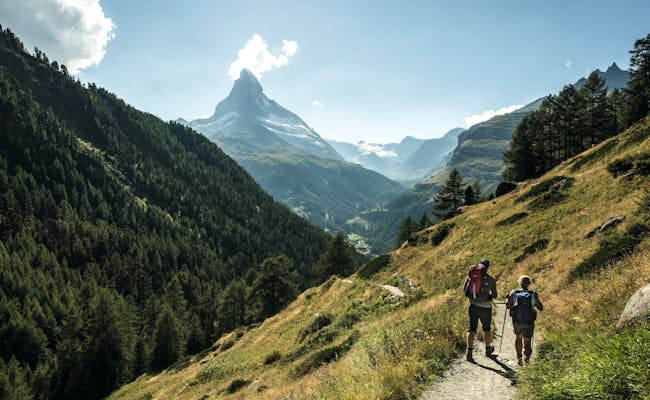
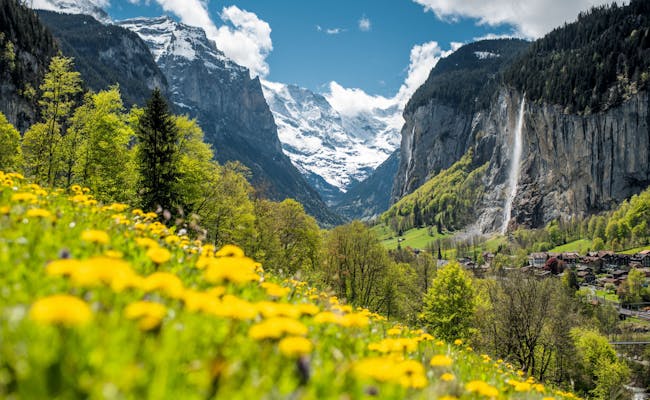
Charlie Chaplin died in Switzerland
In "Chaplin’s World," you can expect a unique museum experience. The "Manoir de Ban" in Vevey houses the life's work of Sir Charles Spencer Chaplin (1889 - 1977). This mansion was where the film legend spent his last 25 years. The cinema's first global star enjoyed being able to move around Switzerland without disturbance. He loved outings and often walked with his children to dinner in Vevey. Charlie Chaplin passed away at the age of 88 in Switzerland.
The (current) Internet was invented in Switzerland
Our ubiquitous World Wide Web was born at the Swiss research institute CERN near Geneva. CERN is one of the world's most significant centers for fundamental physics research. We owe today's Internet to the intellectual fathers and inventors Tim Berners-Lee and Robert Cailliau from CERN. You can read more about the inventions of Switzerland in our article on this topic. At the turn of the new millennium, humanity entered a new era. On November 13, 1990, CERN made the first website available online through its own web server: info.cern.ch. The world as we knew it changed fundamentally.
James Bond's mother is Swiss
Agent 007, aka James Bond, is Ian Fleming's famous literary character, thus a fictional person. According to sparse details from the novels, James is the son of a Scottish engineer and the Swiss woman Monique Bond, née Delacroix. A Swiss mountaineer. In real life, her name was Monique Panchaud de Bottens. She was attractive and was engaged to Ian Fleming for a while. Fleming referred to her as the Coco Chanel of Switzerland.
The Dalai Lama owns a vineyard in Switzerland
In the Valais village of Saillon stands the smallest vineyard in the world, looking like a spread-out towel. This 1.6 m2 piece of land with just four vine stocks belongs to the Dalai Lama. He became the vineyard owner in 1999 when the Catholic Abbé Pierre gave him this plot. Twenty years prior, it was established in honor of Joseph-Samuel Farinet, the "Robin Hood of the Alps," who helped the poor with counterfeit money in the 19th century.
Once a year, the Tibetan leader auctioned off 1000 bottles of "Peace Wine." The few deciliters from the tiny vineyard are supplemented by neighboring winemakers with their grapes. With the approximately 20,000 Swiss francs raised from the auction, the Dalai Lama helps those in need around the world. Thus, he is the smallest landowner in Switzerland.
The Red Cross was founded in Switzerland
In 1859, the Geneva businessman and humanitarian Henry Dunant (1828-1910) witnessed the Battle of Solferino. The suffering was immense, deeply affecting the devout Dunant. A decisive phrase began to circulate: "Siamo tutti fratelli" – "We are all brothers."
Whether friend or foe, the residents of the nearby city of Castiglione cared for all victims without regard to their identity. Dunant helpfully contributed on the front lines. His demand for multinational aid organizations became undeniable. In 1863, he presented his ideas for the "Society for Humanitarian Aid" in Geneva. This marked the birth of the International Committee of the Red Cross, now known as the ICRC.
The resemblance of the Red Cross emblem to the Swiss flag was not coincidental. Geneva became and remains the headquarters of the ICRC. To this day, the ICRC's missions have multiplied worldwide in over 100 countries. The number of staff has risen to about 20,000, and the number of volunteers has climbed to over 10 million. In 1901, Swiss Henry Dunant, together with the French pacifist Frédéric Passy, received the first Nobel Peace Prize.
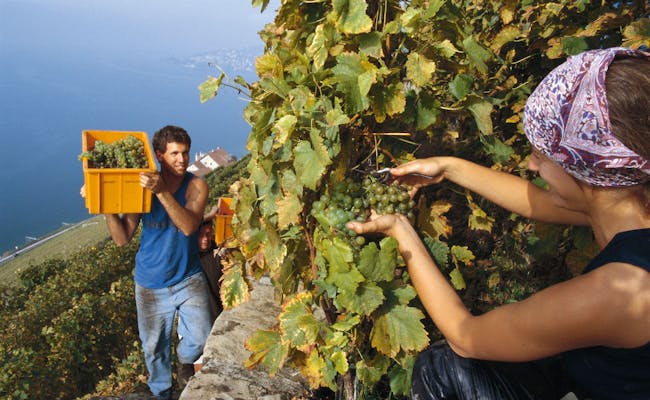
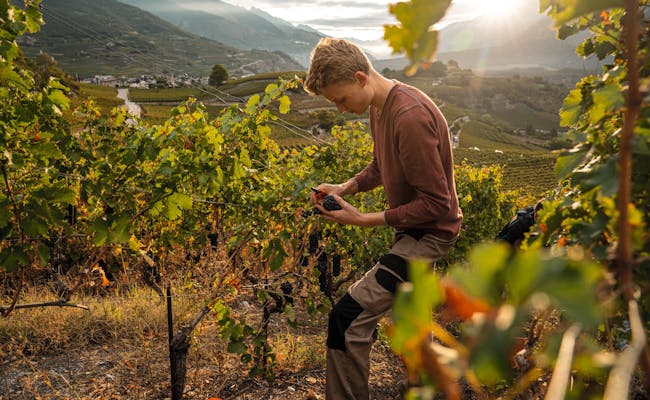
Guinea pigs can’t live alone in Switzerland
"Popcorning" refers to the joyful leaps of a happy guinea pig. They bounce around like popcorn in a hot pan when they’re excited. This also relates to a line in our animal protection law: "Social animals must be provided with appropriate social contact with their kind." Guinea pigs definitely fall into this category of social animals.
They form friendships and take care of older and sick companions. Our furry "sea pigs" can live in a harem if you let them. Additionally, it's forbidden to expose them to excessive noise since they can hear better than we do.
The same rule applies to other animals like pet birds, rats, mice, chinchillas, and parrots.
You can’t just give your child any name
"A single letter is not a first name," stated a Zurich court, "just a gimmick by the parents." This spared the unconsulted baby the monogram name "J". All baby names in Switzerland require approval from the civil registry office.
If you invent names, it becomes problematic. The welfare of the child is paramount, which is why bizarre or absurd names are seen as unreasonable. A Swiss musician was not allowed to name her daughter "Lexikon". The following names were also rejected:
- Biblical villains like Cain or Judas
- Brands like Chanel, Porsche, or Bentley
- Girl names for boys and vice versa
- Place names like Paris, London, or Tokyo
- Brand new fantasy names from excited parents
Some US celebrity kids would thus have different names in Switzerland. Brad Pitt & Angelina Jolie’s creations would be scrutinized here: Maddox Chivan, Pax Thien, Zahara Marley, Shiloh Nouvel, Knox Léon, Vivienne Marcheline. Although creativity in naming may be lost, the kids might actually appreciate it.
You’ll find Europe’s highest railway station in Switzerland
Top of Europe is the terminus at the Jungfraujoch at an altitude of 3,454 m. It’s the final stop of a spectacular train route. Each year, a million visitors arrive at Europe’s highest railway station at the end of a 7 km long tunnel. Countless hands literally chiseled it into the rock over 16 years during the late 19th century.
The construction of the Jungfrau railway by Swiss industrialist Guyer-Zeller through the mountain range is considered a pioneering work and a technical masterpiece. Before, the mountain remained hidden from a wider audience under eternal snow and ice of the Bernese Alps. While reaching Jungfraujoch, the train climbs 1,400 meters with stops for altitude acclimatization.
At the Top of Europe, your ultimate Alpine experience begins. From the platform, you’ll access the viewing terrace. There, the thin air and a mountain panorama with 200 Alpine peaks will take your breath away. You’ll gaze at Europe’s longest glacier, the Aletsch, nestled within the UNESCO World Heritage Site Swiss Alps Jungfrau-Aletsch.
Apart from Europe’s highest station, Switzerland boasts an array of other railway superlatives:
- Highest adhesion railway (not a cogwheel train) in Europe: Bernina Railway over the Bernina Pass|2,253 m above sea level
- Longest railway tunnel in the world: Gotthard Base Tunnel|57 km long
- Slowest express train in the world: Glacier Express from St. Moritz to Zermatt|37 km/h average speed
- Oldest mountain railway in Europe: Vitznau-Rigi Railway|opened in 1871
- Longest cogwheel railway in Europe: Wengernalp Railway|19 km long
- Steepest cogwheel railway in the world: Pilatus Railway from Alpnachstad to Pilatus|48% gradient
- Shortest railway in Europe: Funicular Marzili in Bern|105 m long
- Steepest funicular in Europe: Stoos cable car in the Canton of Schwyz|110% gradient
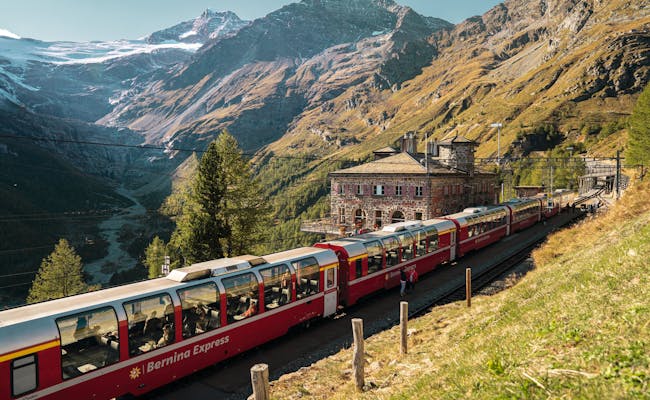
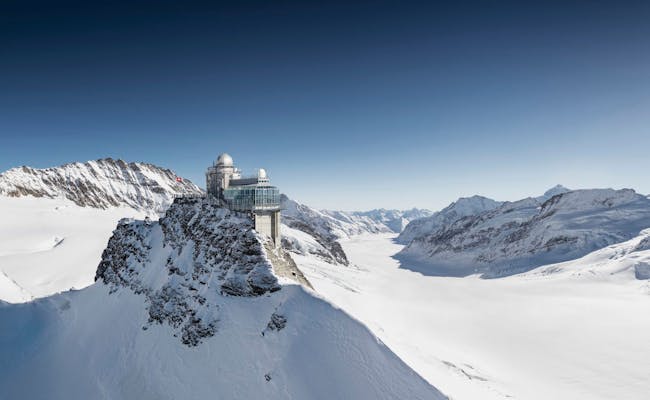
… and the longest staircase in the world
The longest staircase in the world has made it into the Guinness World Records. It is located in Switzerland—in the Bernese Alps to be precise. Leading over Lake Thun, 11,674 steps take you up to the 2,362 m high Niesen. But you'd probably be better off taking the cogwheel train.
This staircase serves as a service stairway alongside the Niesenbahn tracks and is exclusively for maintenance work. A regular person needs five hours to conquer these steps. During the annual Niesenlauf, 300 power women and men from 20 countries come together to tackle the stairs. The current record holder, Emmanuel Vaudan, completed the 1,643 height meters in just under an hour in 2011.
Swiss people flush their toilets with drinking water
What do you do when you wake up thirsty in your Swiss hotel at night? You drink tap water straight from the faucet. Switzerland is among the top ten countries in the world with the best water quality.
Thanks to favorable climatic and geological conditions, Switzerland has clean water in abundance. A sustainable water protection policy also ensures that Swiss tap water meets drinking water quality standards. What comes from the supply network into faucets, showers, and toilets is drinking water.
Swiss people don't refrigerate eggs
While eggs stack uncooled on Swiss store shelves, you’ll find them in the refrigerated sections of US supermarkets. Regulations there require thorough washing after laying. This breaks down the outer protective layer of the shell, which is why the washed eggs need to be stored in the fridge to stay germ-free.
Swiss people do not refrigerate eggs. Washing eggs is prohibited here and throughout Europe. This allows the eggshell to keep its protective coating, which can, however, lead to mold formation when cooled. Despite how similar one egg is to another, these two hygiene approaches are quite oppositional.
Switzerland has many banks
They are never far away: The numerous banks are considered a significant economic sector here. With over 300,000 employees, they manage around 7,000 billion francs as global market leaders. This accounts for a quarter of the cross-border world wealth.
Why are Swiss banks so popular? The reasons can be found in Switzerland's economic and domestic political stability, as well as its foreign policy neutrality. The advantageous tax system and strict banking supervision enhance the attractiveness of the financial center. High professionalism and reliability grant Swiss financial institutions international trust.
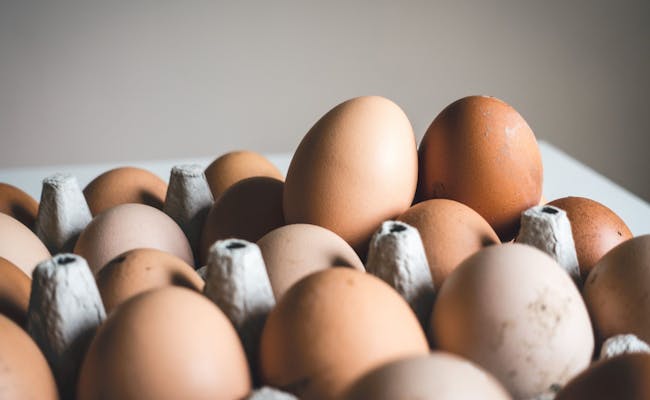
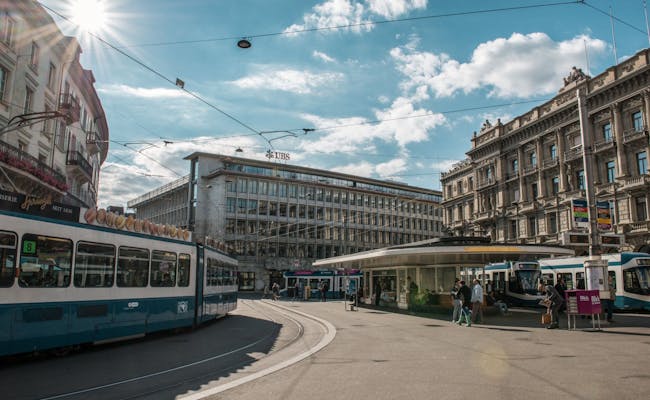
Military service is mandatory in Switzerland
Early on, Switzerland had to assert its sovereignty against great powers. Until the end of the Cold War, the Swiss militia army was a mass army of 600,000 soldiers. The fall of the Berlin Wall in 1989 brought peace and neighbouring countries abolished conscription.
What has remained is the federal militia concept: every citizen is a soldier. Despite a reduced army, Switzerland still has compulsory military service. It begins between the ages of 18 and 30 with an 18-week recruit school and lasts 10 years. During this time, there are six refresher courses of three weeks each.
If there are reasons of conscience against armed military service, you have to do civilian service for a longer period of time. Increasingly, women are doing voluntary military service. Today, every soldier is still allowed to keep his weapon at home. This proof of trust, unique in the world, is part of the traditional militia concept of a Switzerland that is willing to defend itself.
Gun ownership is high in Switzerland
More than two million firearms are stored in Swiss households. The Swiss militia system and partly liberal gun legislation make this possible. In Switzerland, there are strictly observed rules for the handling of firearms and an obligation of good conduct when purchasing them.
Although gun ownership is widespread in Switzerland, it remains peaceful. In the gun-friendly United States, there are 5 shootings per 100,000 inhabitants; in this country, the figure is 0.02 cases.
The Swiss love their Sundays
1700 years ago, Emperor Constantine declared Sunday a day of rest. The "Lord's Day" began as a religious rule and developed into a tradition. The Swiss love their Sunday and see this work-free day as a fundamental right. Proposals to loosen Sunday restrictions are regularly rejected by the electorate during votes.
Sunday work is expensive for employers in Switzerland. Cost reasons and regulations keep the shops closed. Shopping is only possible at railway stations, airports, petrol stations, exceptional Sundays and in some tourist destinations. Consideration for neighbours and Sunday peace are highly valued in Switzerland. Mowing the lawn or doing noisy handicrafts in the house are frowned upon.
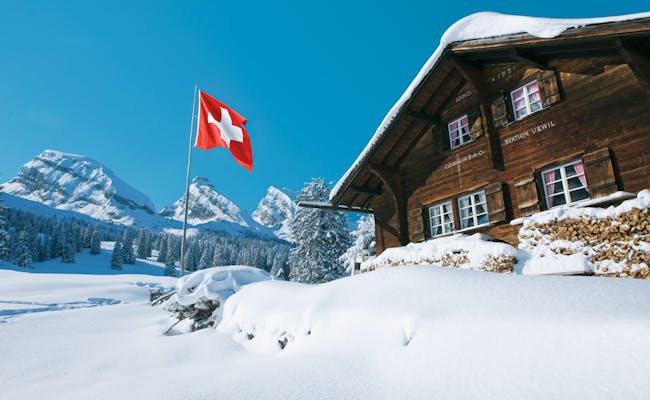
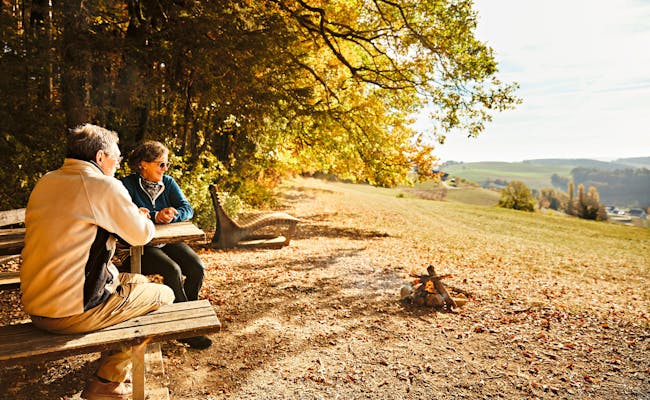
Have these 40 interesting facts about Switzerland aroused your curiosity? In the destination of superlatives, beautiful, cheerful and exciting things await you in the smallest space. You will benefit from short distances and a rich offer of unforgettable travel experiences.